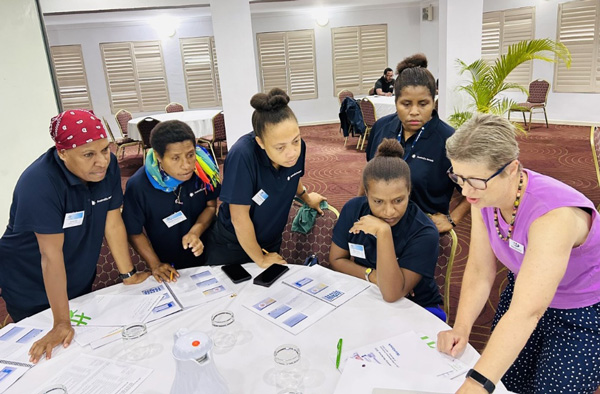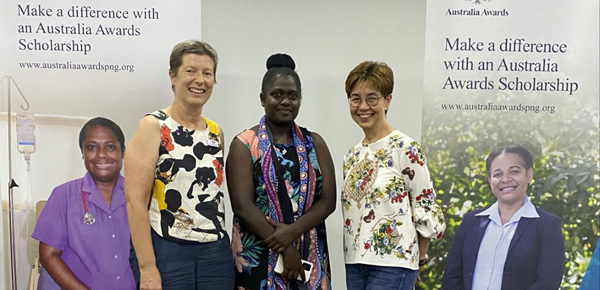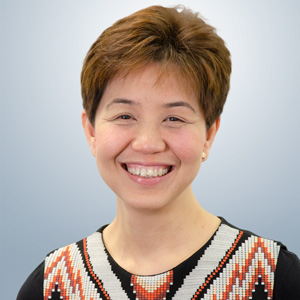Empowering Healthcare Professionals to Bridge the Gap: Addressing Health Inequity in Papua New Guinea
Equity in healthcare refers to the absence of systematic disparities in the distribution of healthcare resources, services and outcomes, with every person having an equal opportunity to access high-quality healthcare regardless of their socio-economic status, race, gender, geographic location or other factors (Braveman & Gruskin 2003; Chang 2002; WHO, 2023). Health inequity is a global issue that affects countries at various income levels and across different regions. However, there are some countries and regions that are more prone to health inequity due to a combination of factors (e.g. geographical location, health literacy, resources, disease burden, etc.). Despite being a resource-rich country and experiencing considerable economic growth over the past decade, Papua New Guinea (PNG) remains one of the poorest-performing countries in the East Asia Pacific region. Access to healthcare is extremely challenging, especially for rural and remote communities.
PNG faces various healthcare disparities and challenges, including limited access to healthcare services, shortage of skilled healthcare professionals, inadequate infrastructure and resources, lack of clinical leadership, and limited access to education and continuing education. Specifically, PNG is known to have high maternal and child mortality rates. Addressing healthcare inequity in PNG requires a multifaceted approach that involves increased investment in healthcare infrastructure, workforce development, health education, and improved access to healthcare services.
JBI has over 25 years’ experience in leading change in health services, notably, by conducting training and research in evidence-based healthcare. One of JBI’s training programs is the highly successful evidence-based Clinical Leadership Workshop, which is designed to prepare clinicians, managers, policymakers and quality managers from all health professions to lead initiatives related to implementing evidence-based approaches to healthcare and achieve change. The workshop provides participants with evidence-based information and practical techniques to create a more positive, personal and professional culture back in their workplace. It helps participants to identify strategies that will assist in managing difficult behaviour, build productive teams and implement change, thereby enabling effective leadership of projects and people.
At JBI, we believe that we can contribute to workforce development in PNG by conducting training and workshops to empower healthcare professionals to provide better care, improve healthcare outcomes and contribute to reducing healthcare disparities.
Understanding Local Needs and Context
Given the high maternal and child mortality rates in PNG, Australia Awards in PNG partnered with JBI to provide the Clinical Leadership Workshop to their midwifery graduates to better prepare them to reintegrate with their local communities and health services. To tailor the training to PNG and ensure that our workshop was relevant and appropriate to the knowledge/cultural needs and skill level of the workshop participants, we consulted some of the PNG nurses/midwives who had previously trained with JBI. We also consulted Australia Awards staff to obtain their input and contextual information to develop the training resources. We modified our workshop substantially to include further information on evidence-based healthcare, clinical improvement and audit and feedback approaches. All content within the presentation slides were reviewed for relevancy to PNG midwives. Changes were made to each session, particularly the group work and contextualised cultural examples used. The entire workshop was structured in an interactive way to draw out experiences and examples from the participants and enable them to reflect on their context, practice and leadership abilities.
Building Local Capacity and Leadership Development

Since 2020, via our partnership with Australia Awards PNG, we have been providing the Clinical Leadership Workshop to nurses/midwives and other health professionals in PNG. In this training, we focus on clinical leadership development so that participants can take initiative, manage resources and implement actions to initiate positive changes within their healthcare facilities. The workshop covers conflict resolution, negotiation, communication and building a positive workplace culture conducive to evidence-based practices. Through these programs, we have been able to provide healthcare professionals with the tools to examine their current practices. This allows them to identify gaps in clinical practice and develop context-specific strategies to address those gaps. Our program helps empower healthcare professionals in PNG to play a more active role in improving healthcare services, which in turn, contributes to a more equitable distribution of quality care.

Participants in these ongoing workshops have been very engaging and positive about their experiences. Overall, there was a high level of satisfaction, with participants agreeing that the program was informative, appropriate and valuable, and equipped them with the knowledge to become effective clinical leaders.
One of the midwives who participated in the program commented:
“I have found this training program to be … vital in enhancing my growth and development in my profession, given my passion to serve women and children. I am honoured and grateful for receiving such experience, to be empowered in the role of a midwife in midwifery care, and I … look forward to attending more such sessions, to be empowered and be a leader.”
One of the most telling stories we have about this program was the establishment of a project involving a practical, easy-to-use method for preventing infant deaths – Kangaroo Mother Care. One of the participants in the Clinical Leadership Workshop was given the opportunity to work with us at JBI to conduct a project to reduce the rate of newborn deaths, especially preterm and low birth weight infants.
Key Messages and Learnings
- Healthcare training and workshops that focus on clinical leadership and evidence-based healthcare empower PNG nurses/midwives and other health professionals to become agents of change in their communities and healthcare facilities. Tailoring the workshop to PNG can address their unique challenges, promoting contextually relevant and effective solutions.
- Developing clinical leadership skills is an essential first step in effecting positive change in healthcare systems. The JBI clinical leadership workshop helps PNG nurses and midwives to take on leadership roles, fostering innovation and improvements in clinical practice. The trained professionals are also better equipped to advocate for policy changes that address systemic healthcare disparities and inequalities in the country.
References
Chang W-C. The meaning and goals of equity in health. J Epidemiol Community Health 2002;56:488-91.
Braveman P, Gruskin S. Defining equity in health. J Epidemiol Community Health 2003;57:254-8.
World Health Organization. Health equity [internet]. WHO; 2023. Available from: https://www.who.int/health-topics/health-equity#tab=tab_1
Additional resources
News story: https://jbi.global/news/article/empowering-pngs-midwives-skills-lead-brighter-future
About the Clinical Leadership Workshop: https://jbi.global/education/clinical-leadership-workshop
Authors
Dr Lucylynn Lizarondo1, Alexa McArthur1
1. JBI, School of Public Health, University of Adelaide, Australia
Disclaimer
The views expressed in this World EBHC Day Blog, as well as any errors or omissions, are the sole responsibility of the author and do not represent the views of the World EBHC Day Steering Committee, Official Partners or Sponsors; nor does it imply endorsement by the aforementioned parties.
